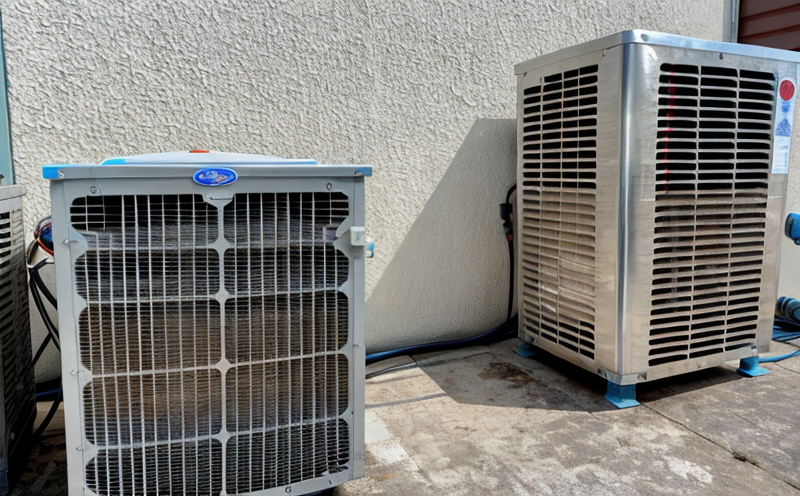HEPA filter inspection
The High Efficiency Particulate Air (HEPA) filter is a critical component in HVAC and ventilation systems. These filters are designed to capture 99.97% of airborne particles as small as 0.3 microns, ensuring superior air quality within enclosed spaces such as hospitals, cleanrooms, data centers, and laboratories. Proper HEPA filter inspection is essential for maintaining the integrity and performance of these systems.
HEPA filters play a crucial role in preventing the spread of airborne contaminants, including bacteria, viruses, mold spores, and other harmful particles. Regular inspections ensure that filters are functioning as intended, thereby protecting both occupants' health and the overall environment within enclosed spaces. This service focuses on the comprehensive inspection of HEPA filters to guarantee their effectiveness.
The process involves a series of detailed checks aimed at identifying potential issues such as filter integrity breaches, dust accumulation, and deterioration. The inspection includes visual assessments, pressure drop measurements, and leakage tests. By adhering to strict protocols, our team ensures that the performance of your HVAC systems meets regulatory standards and operational requirements.
Our expertise in HEPA filter inspections is complemented by adherence to international standards such as ISO 14644-3:2019 for cleanrooms, EN 1822:2015 for testing air filters, and ASHRAE 52.1:2017 for rating of indoor air quality retarding devices.
For quality managers, compliance officers, R&D engineers, and procurement professionals, our services provide invaluable insights into the condition of your HVAC systems. By leveraging these inspections, you can make informed decisions regarding maintenance schedules, replacement cycles, and overall system efficiency. This proactive approach not only enhances operational performance but also contributes significantly to environmental sustainability.
Applied Standards
| Standard | Description |
|---|---|
| ISO 14644-3:2019 | International standard for cleanroom classification and testing, which includes requirements for HEPA filters used in such environments. |
| EN 1822 | European standard for testing air filters, including HEPA filters. |
| ASHRAE 52.1:2017 | American Society of Heating, Refrigerating and Air-Conditioning Engineers standard for rating indoor air quality retarding devices. |
| ASTM E1694 | Standard test method for measuring the efficiency of dust filters using a cascade impactor and gravimetric techniques. |
Environmental and Sustainability Contributions
The importance of HEPA filter inspections extends beyond mere compliance; it also contributes to environmental sustainability. By ensuring that your HVAC systems are operating efficiently, we help reduce energy consumption and lower emissions associated with poor air quality management.
A well-maintained HEPA filtration system can significantly extend the life of filters, thereby reducing waste sent to landfills. Furthermore, preventing breaches in filter integrity helps maintain optimal indoor air quality, which is crucial for health and well-being. This not only supports sustainable practices within your organization but also aligns with broader environmental goals.
The use of HEPA filters and their proper inspection play a vital role in reducing the transmission of airborne diseases, thus supporting public health initiatives aimed at improving air quality in built environments. By investing in this service, you contribute to creating healthier indoor spaces that benefit both your employees and visitors.
Competitive Advantage and Market Impact
- Regulatory Compliance: Adhering to strict inspection protocols ensures compliance with local, national, and international regulations related to HVAC systems.
- Operational Efficiency: Proactive maintenance through regular inspections leads to reduced downtime and improved system performance.
- Cost Savings: Early identification of issues prevents costly replacements and repairs down the line.
- Enhanced Reputation: Demonstrating a commitment to maintaining high standards for air quality can enhance your organization's reputation, attracting more customers and partners.
- Innovation: By staying updated on best practices in HEPA filter inspection, you are positioning yourself at the forefront of technology and innovation within your industry.
The market recognizes the value of a sustainable approach to air quality management. Organizations that prioritize these aspects are likely to gain competitive advantages over those who do not. Our services help you stay ahead by ensuring your HVAC systems meet or exceed the highest standards, thereby contributing positively to both your bottom line and the environment.





